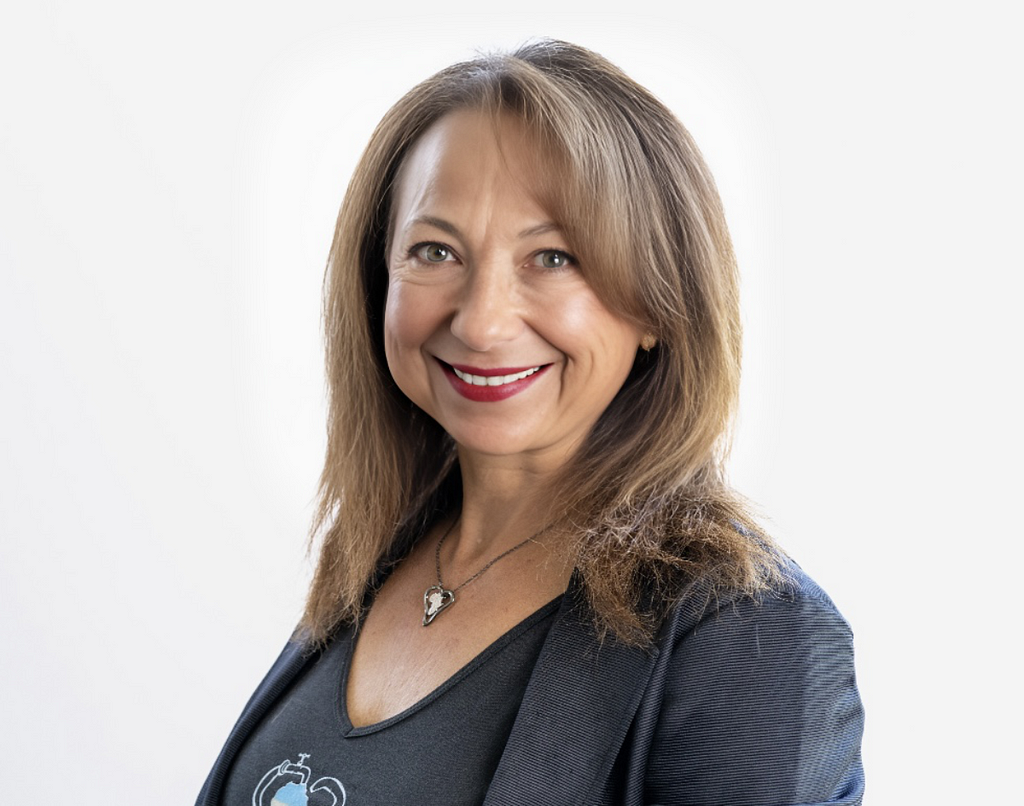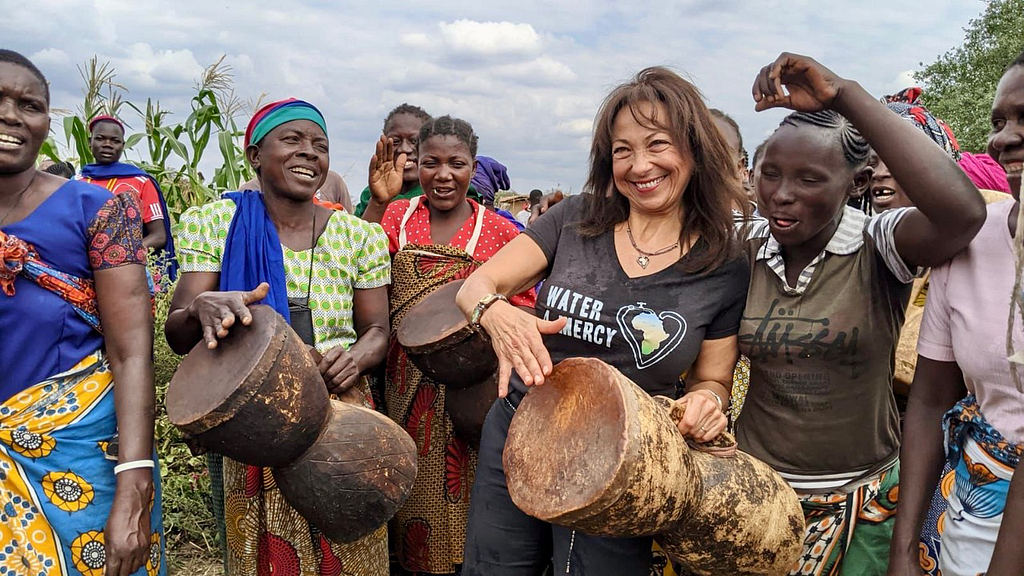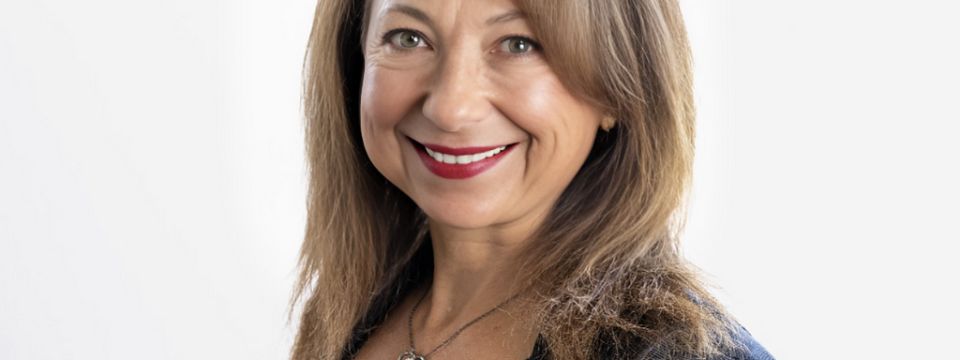Social Impact Heroes: Why & How Nermine Khouzam Rubin Of Water 4 Mercy Is Helping To Change Our World

The Need for Patience and Resilience: Patience and resilience are virtues I wish I had grasped sooner, before embarking on this journey. There were moments of frustration and setbacks, especially when facing obstacles in some of our most remote villages. The patience and resilience we cultivated within our organization allowed us to keep going even when faced with seemingly insurmountable challenges.
As part of my series about “individuals and organizations making an important social impact”, I had the pleasure of interviewing Nermine Khouzam Rubin.
Nermine Khouzam Rubin is the founder and CEO of Water 4 Mercy, a not-for-profit with an innovative approach combining water access with agricultural solutions and community engagement empowering villages in Tanzania to thrive and transform their lives. Under her stewardship, the organization has impacted the lives of over 50,000 Africans by partnering with 12 communities in Tanzania and Kenya to provide critical access to freshwater and agricultural training.
Rubin was inspired to create Water 4 Mercy after visiting Tanzania with her daughter in 2017 and noticing that while there were many charities focused on helping the African people, there was a gap in helping to empower them to transform their lives and learn to be independent. Whereas traditional models would raise money for them, Rubin set out to create Water 4 Mercy with a three-pronged approach to helping African communities break out of their cycles of poverty and helping current generations build the foundation for the future. Its model empowers local residents to ensure the long-term impact of its work and the recipients’ ability to maintain their own communities.
Prior to founding the organization, Rubin served in several business development roles including vice president of business development for TTS Thermal Cycling and director of business development for The Thomson Corporation and Gresham, Smith, and Partners as they focused on expanding their reach, generating sales and implementing brand strategies.
Rubin has been involved in many philanthropic efforts over the years. She currently sits on the boards of Clearwater Central Catholic High School, Enviro Projects International, Main Street Economics and the Jewish National Fund.
Rubin received her bachelor’s degree in psychology with a minor in chemistry, master’s degree in business administration (MBA) and a master’s degree in health and hospital administration (MHS), all from the University of Florida.
Rubin resides in Clearwater, Florida with her husband and children.
Water 4 Mercy’s innovative approach combines water access with agricultural solutions, and community engagement empowering villages to thrive and transform their lives and future. Its holistic approach brings about a transformative impact on the lives of individuals, improving health, education, economic opportunities, and overall quality of life in African communities. For more information, visit: www.water4mercy.org.
Thank you so much for joining us in this interview series! Can you tell us a story about what brought you to this specific career path?
Years ago, my daughter and I were supporting a charity that raised money to sponsor young women living in remote African villages so they could attend a parochial secondary school. As our family got more involved in the charity, my daughter started learning more about the girls we were sponsoring, and her yearning to visit these girls began to blossom.
In 2017, she finally convinced me to take her to Tanzania where we had the opportunity to visit the young women that we had been supporting all these years. First, we visited the school in Dodoma, and then, upon invitation, visited one of the girl’s villages nearly three and a half hours away. As we drove closer to the village, we saw women trekking with jugs and buckets, and were told by our driver that they were ferrying water, from wherever they could find it, back to the village. We asked if the water came from a natural spring or any form of clean source and were told that with water as scarce as it was, they would find and use anything they could get, often leading to disease.
We learned that the sole industry in the area was agricultural farming, and driving through the village, saw men who it seemed had lost all hope, wasting away and praying for rain so that they could farm and feed their families.
It was clear that the community was not living in healthy or sustainable conditions, nor could they see an end in sight. All they wanted — like you or I — was to provide for their families.
Returning to the U.S. after the trip, I researched the issue and quickly learned that it all starts with water. Fresh, clean and accessible water would allow the residents in this community and others like it to eat healthier, grow healthier and more bountiful produce and eventually change their community’s cycle from poverty to self-sustainability.
The few hours we spent in that village inspired me to find a solution — one that would make water more accessible for them, that would help them break out of their cycle of poverty and that would help the village be on the road toward economic independence, while upholding their human dignity. Since forming Water 4 Mercy in 2018, we have brought clean water to 16 sub-Saharan villages, provided agricultural training to more than 2500 farmers (to date), and have changed the trajectories of the lives of close to 65,000 Africans.
Can you share the most interesting story that happened to you since you began leading your company or organization?
The most interesting and inspiring experience I’ve had since starting Water 4 Mercy, was when we returned to Africa in December of 2019 to revisit Mwinyi, one of the communities we initially supported in 2017.
Mwinyi is a village in Tanzania which is now home to 5,000 people. Before we brought fresh water, it had less than 2,000 villagers and was a place where women walked for miles to find water each day for drinking, cooking and hygiene. Many times the water they found was not fresh or clean, causing constant disease among its inhabitants.
After returning from Tanzania in 2017, our family started raising the necessary funds to procure and install a freshwater system in Mwinyi, and in early 2018, the system was completed and the taps were turned on.
When we returned in 2019, it was a full 180 experience from our first one. You couldn’t imagine that this community had previously suffered from severe poverty and water-born illness for generations. It was a stark illustration of how access to clean and fresh water makes up such a critical utility in a thriving community, and how it affects not only hygiene, but agriculture too, and how it ultimately brings dignity and hope.
The juxtaposition of what it was like in July 2017 during our initial visit when it was a desolate community where women walked for miles each day in search of water and where the children didn’t attend school because they needed to support their family’s search for clean water. They were dependent on rain for sustenance. Two years later, we saw a community more than double in population with multiple clean water access points growing several types of fruits and vegetables. As a parent, I was so excited to see these same children attending school and creating hope for the generations to come.
Can you describe how you or your organization is making a significant social impact?
Through our growing impact which focuses on Water, Food, and Hope, Water 4 Mercy is bringing dignity to African communities and empowering cycles of success for impoverished communities on the Continent.
Unlike traditional philanthropic models that in some cases create a long-term reliance on charity, our optimal three-pronged approach helps African communities break out of their cycles of poverty and helps current generations build the foundation for the future. Our model empowers local residents to ensure the long-term impact of our work and the recipients’ ability to take control of the trajectories of their lives.
Can you tell us a story about a particular individual who was impacted or helped by your cause?
One of the people Water 4 Mercy has been able to help is Deborah, a young, orphaned girl from Huzi Village in Tanzania, charged with sourcing water for her family and grandmother because her mother died of waterborne diseases. Walking for miles each day, she’d spend most of her time on the search, often missing school, and when she did finally find the water, it ended up being contaminated.
At 17 years old, she grew up trading her education to provide whatever water she could find for her family, and her future seemed bleak. That was until Water 4 Mercy stepped in. Partnering with Innovation:Africa, we brought fresh and clean water to her community and a few months later, partnering with CultivAid we brought agricultural infrastructure, including drip irrigation systems, and training to her community, breaking her community’s future from its cycle of poverty.
Deborah’s story, documented in a children’s book titled The Most Wonderful Rain, is now selling on Amazon, Barnes & Noble and also available as eBooks. All proceeds from the book are donated to Water 4 Mercy for the purpose of funding more sustainable projects throughout Africa.
How can others join your mission?
While we’ve already been able to help 16 communities by bringing fresh water to their villages, there are many more villages eagerly awaiting our support as soon as we can secure the funding. Our goal is to secure additional funding to provide six additional water systems by the end of the year and agricultural infrastructure and training for another 8 villages. We are currently raising funds to turn the taps on for these six villages right away and welcome individuals and groups to reach out and join us in our mission.
We also partner with a wide variety of organization service chapters, including businesses, religious organizations, and high school and college student chapters to educate participating members about the impact of water and drought conditions in Africa and around the world.
I encourage those interested in learning more to go to our website, www.Water4Mercy.org to tap into a plethora of information.
How do you define “Leadership?” Can you explain what you mean or give an example?
Leadership is the combination of personal qualities and actions that enables someone to inspire and guide others towards a common goal, especially when that goal involves making a positive impact on the world at large. Some of the key qualities leaders need to possess are empathy, determination, and collaboration.
A crucial aspect of how I am able to lead Water 4 Mercy is my ability to empathize with the people I am helping. That’s because I try to spend time with the people in each of the projects that we support. By understanding their needs, the history of their communities and how Water 4 Mercy’s sustainable solution can change their lives and that of their communities, I can better support their success.
When people are suffering, we all need to work together which is why Water 4 Mercy regularly collaborates with others to help change cycles of suffering into cycles of success. On almost every project we work on, we have partners on the ground, like Innovation:Africa, CultivAid, and Don Bosco Technical Institutes of Africa, we partner with local governments in the areas where we operate our projects, and most of all our focus is to partner with the community we are serving, empowering them through generosity, because ultimately it will benefit everyone most when we are all working together.
In the United States we partner with donors who contribute towards these projects, with our student chapters and with community and religious institutions that support our vital mission.

What are 5 things you wish someone told you before you started Water 4 Mercy?
- The Importance of Building a Strong Support Network: In the early days of Water 4 Mercy, I tried to handle every aspect of the organization myself. This led to burnout and a decrease in overall effectiveness. I’ve since learned the importance of delegating. I now have a trusted team that shares the workload, allowing me to focus on strategic leadership.
- The Complexity of Fundraising: When running a nonprofit, understanding the intricacies of fundraising is vital. I learned this firsthand when trying to secure funds for our projects. It’s not just about asking for donations; it’s about creating compelling narratives, building relationships with donors, and demonstrating the impact of our work.
- The Need for Patience and Resilience: Patience and resilience are virtues I wish I had grasped sooner, before embarking on this journey. There were moments of frustration and setbacks, especially when facing obstacles in some of our most remote villages. The patience and resilience we cultivated within our organization allowed us to keep going even when faced with seemingly insurmountable challenges.
- Effective Project Management and Scaling Strategies: As Water 4 Mercy expands its projects, I have realized the importance of effective project management and scaling strategies. Facilitating multiple initiatives simultaneously can resemble a balancing act, and keeping everything in the air will feel nearly impossible if strategies such as proper resource allocation and optimizing timelines are not prioritized.
- Measuring Impact and Data Management: For Water 4 Mercy, collecting data from the villages we have helped is not just about the numbers; it’s about understanding the real change our projects bring to people’s lives. I recall many instances where villages, after receiving clean water, see a significant drop in waterborne diseases and an increase in school attendance. It’s important for us to continue documenting and communicating such changes effectively, to bolster our credibility and gain more support for our cause.
You are a person of enormous influence. If you could inspire a movement that would bring the most amount of good to the most amount of people, what would that be? You never know what your idea can trigger. 🙂
It’s a great question and I think a movement centered around “Sustainable Community Empowerment to Uphold Human Dignity,” would be where I would start. It would focus on bringing about positive and lasting change to a wide range of communities, particularly in regions facing challenges like poverty, lack of clean water, food insecurity, and limited access to education.
Our mission would advocate for individuals, organizations and governments worldwide to take concrete actions and work tirelessly towards reaching the United Nation’s Sustainable Development Goals (SDGs).
Our action items would prioritize sustainable development, education, skill-building and collaborative global partnerships with the end goal of upholding human dignity by creating a world where every person has access to basic necessities, education and opportunities.
What’s your favorite “Life Lesson Quote”? Can you share how that was relevant to you in your life?
If you give someone a fish they eat for a day; if you teach someone to fish, they eat for a lifetime, but you can’t teach them to fish when they are starving. When I first visited Tanzania in 2017, I saw firsthand a community that was constantly “given fish,” over generations of donations, they learned how to hope for help from abroad, but they were not helping themselves. That is why it is so important to give in a way that empowers the receiver (“teaching the man to fish”) so that our donations are an impactful investment that changes the long-term trajectory of not only his, but also his descendants’ lives.
Is there a person in the world, or in the US with whom you would like to have a private breakfast or lunch with, and why? He or she might just see this, especially if we tag them. 🙂
If I could have a private breakfast or lunch with one person in the world, it would undoubtedly be St. Mother Teresa of Calcutta, who has been a tremendous source of inspiration for me and my journey with Water 4 Mercy.
Her unwavering dedication to serving the poorest of the poor, her boundless compassion, and her ability to inspire profound change resonate deeply with me. I would want to learn how she transformed a small mission into the globally recognized Missionaries of Charity, a household name known for its selfless service to humanity.
Meeting with Mother Teresa would be a once-in-a-lifetime opportunity to hear how she navigated the complexities of humanitarian work and was able to create a lasting impact on a global scale while maintaining faith, hope, and love in the face of immense suffering.
This was very meaningful, thank you so much. We wish you only continued success in your great work!
Social Impact Heroes: Why & How Nermine Khouzam Rubin Of Water 4 Mercy Is Helping To Change Our… was originally published in Authority Magazine on Medium, where people are continuing the conversation by highlighting and responding to this story.
